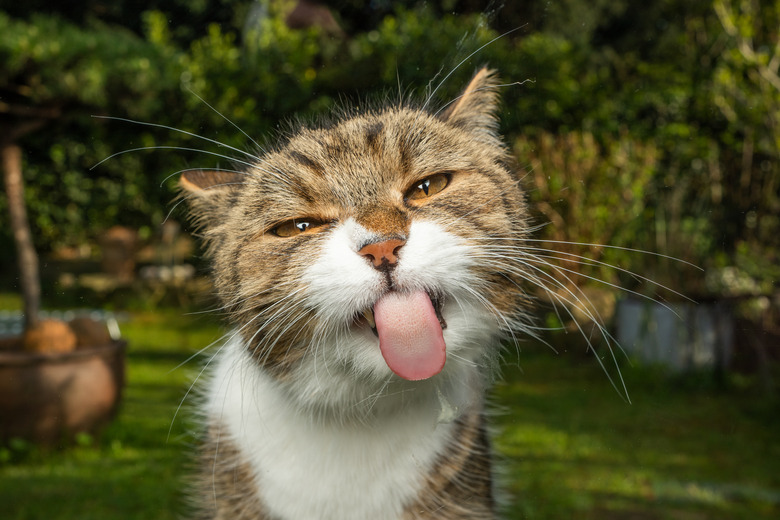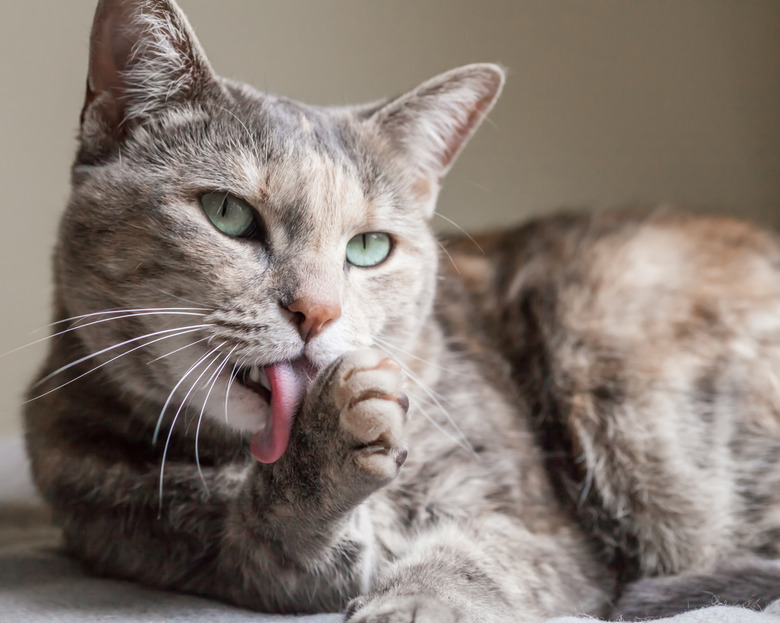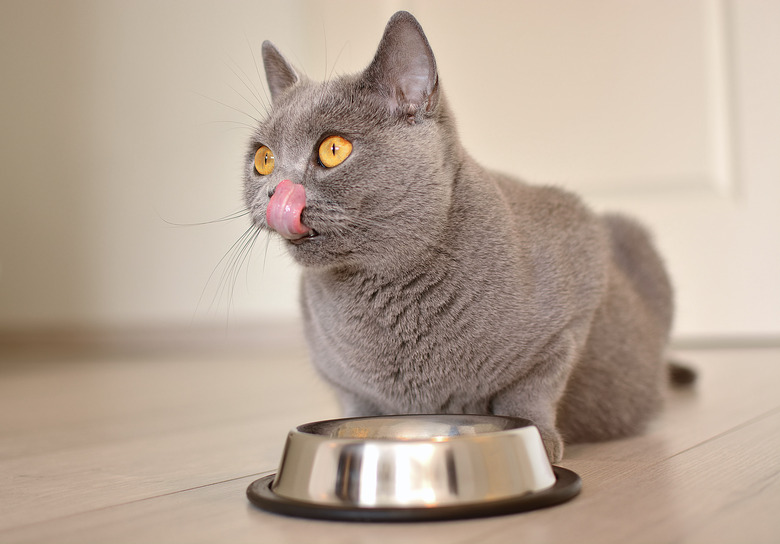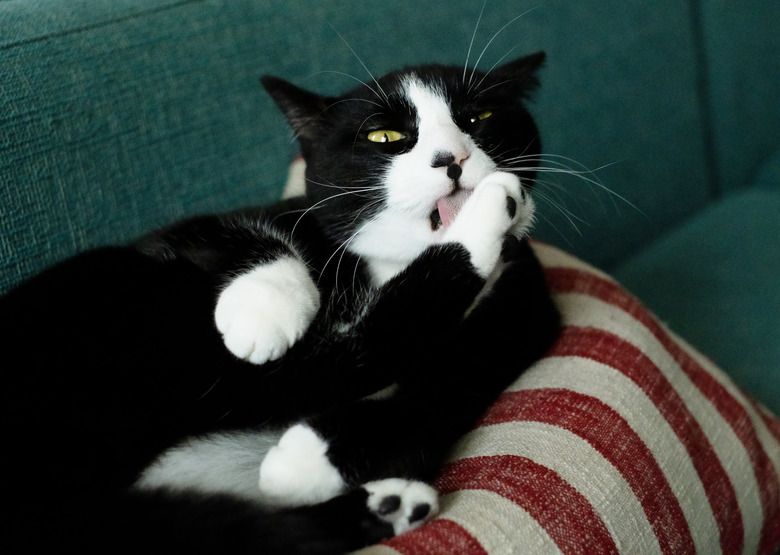What's In Cat Saliva?
Cats often show pleasure and affection by licking their loved one's hand. However, when this happens, you may wonder how safe it is to have cat saliva on your skin. Like human saliva, cat saliva is composed of several elements, some of which are harmless and others that could be harmful, especially to someone who develops allergy symptoms after being around cats. In some cases, the saliva of a cat is dangerous, so seek medical attention if a cat bites you.
Composition of cat saliva
Composition of cat saliva
Cats, especially those who spend large amounts of time outdoors, have bacteria in their saliva. Humans also have bacteria in their mouths, but cats can pass on particular forms of bacteria — including one that causes "cat scratch disease," an infection that generally does not cause serious symptoms in healthy adults. To be on the safe side, always wash thoroughly after being bitten or scratched by a cat (saliva transfers to the cat's paws when it cleans itself.)
Enzymes that prevent infection
Enzymes that prevent infection
Cat saliva may contain enzymes thought to work as natural antibiotics, which may explain why cats lick their wounds. These enzymes prevent infection and promote healing. However, since cat saliva also has plenty of harmful bacterial, be sure to monitor any wounds for signs of infection that may need veterinary treatment.Furthermore, the enzymes act as a barrier against odors that may attract predators, assist in cooling the body in warm weather, distribute oils throughout the coat to keep it supple and healthy, and stimulate blood flow.
Grooming and cat saliva
Grooming and cat saliva
Because cats lick their fur so often, traces of household cleaning products often show up in their saliva after accidental exposure to the fur. If your cat begins to drool excessively or foam at the mouth, this may be the explanation. In this case, take your cat to see the veterinarian to determine the root cause of the problem, and make sure to use animal-friendly cleaning products in your home.
Is cat saliva dangerous to humans?
Is cat saliva dangerous to humans?
No, generally, cat saliva is not dangerous to humans unless it enters deep into your skin through a puncture wound. If a cat bites you, the curvature of the cat's tooth causes the bite to puncture the skin in such a way that makes healing difficult. The saliva of a cat is dangerous in bite wounds as the harmful bacteria in a cat's mouth gets deep into your tissue. Puncture wounds from bites can be very difficult to clean and disinfect and often, the result is the wound heals over, leaving an abscess below.
Cat saliva and human health
Cat saliva and human health
People who are allergic to cats are sometimes under the mistaken belief that the allergic reaction comes from the cat's fur. In fact, it is a reaction to a protein found in feline saliva and oil glands in the skin. Most alllergies stem from this protein, which is called Fel d 1. This protein is passed on in the saliva from a cat tongue to the cat's fur when the cat cleans itself. This protein gets transferred from the saliva to the dander and fur, particularly around the cat's face and neck.If you do have cat allergies, they might be triggered by dander, which are the flakes of dead skin shed by cats and other furry pets. Dander is kind of like dust.
Cat saliva is known to trigger cat allergies, and some cats produce more Fel d 1 than others. You might be allergic to an adult cat, but not have the allergic symptoms when there is a kitten around, because kittens don't groom themselves very much.If you have cat allergies, have someone without allergies brush the cat in an area that is outside your home. Vacuum frequently and use an air cleaner with a HEPA filter. An allergist can develop an immunotherapy program that includes allergy shots that may reduce the severity of symptoms.
Cats and the human immune system
Cats and the human immune system
Even though cat saliva can contain harmful bacteria, overall, science says that households with children that have cats have healthier immune systems. Studies have shown that people who grew up with a pet in the home (not just a cat) experienced a reduced chance of having allergies to the type of pet they had later in life. It's not just having a cat in the home that can build immunity to cat allergens, age makes a difference too. People who had a childhood pet, meaning they were exposed to a domestic cat or dog in their early life, especially in the first year of life showed the most consistent reduction in pet allergies as adults.
The bottom line
The bottom line
Cat saliva contains proteins, enzymes, and bacteria. Cat saliva does have bacteria in it, but generally, for healthy adults exposure to this does not cause problems. Exposure to cat and dogs as household pets early in life is actually associated with a decrease in allergic reactions to cats later on in life along with a generally healthier immune system. If a cat bites you, it's safest to wash your skin after the incident. Cat saliva contains a protein called Fel d 1. This protein is passed on in the saliva from a cat tongue to the cat's fur when the cat cleans itself. People who are allergic to cats are sometimes under the mistaken belief that the allergic reaction comes from the cat's fur but it is actually a reaction to this protein.



